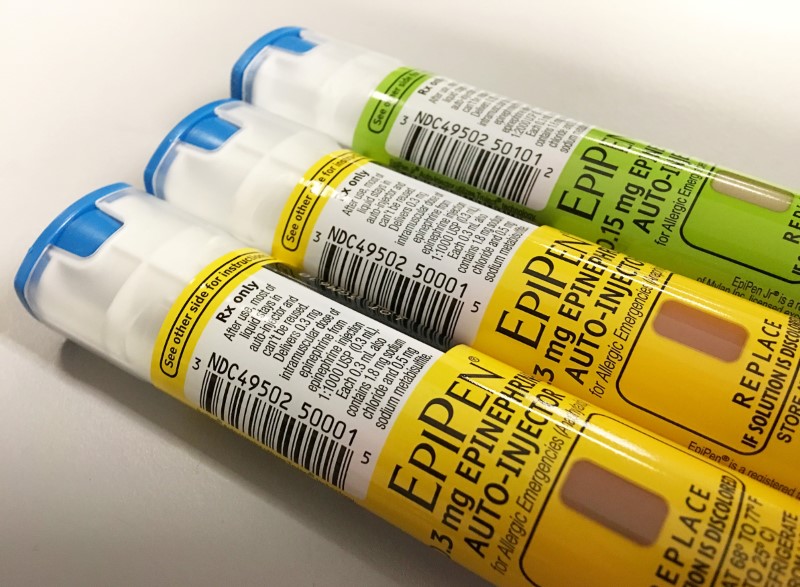By Nate Raymond
BOSTON (Reuters) - Mylan NV (O:MYL) has finalized a $465 million settlement with the U.S. Justice Department, resolving claims it overcharged the government for its EpiPen emergency allergy treatment, which became the center of a firestorm over price increases.
The U.S. Attorney's Office in Massachusetts revealed the accord on Thursday, 10 months after Mylan said it reached a deal resolving claims it misclassified the EpiPen as a generic rather than a branded product to reduce the rebates it pays to the Medicaid healthcare program for the poor.
"Taxpayers rightly expect companies like Mylan that receive payments from taxpayer-funded programs to scrupulously follow the rules," Acting U.S. Attorney William Weinreb said in a statement.
Under the deal, Mylan did not admit wrongdoing. It will reclassify EpiPen and pay the rebate applicable to its new classification as of April 1, 2017.
"Bringing closure to this matter is the right course of action for Mylan and our stakeholders to allow us to move forward," Mylan Chief Executive Heather Bresch said in a statement.
The deal followed a False Claims Act whistleblower lawsuit filed by French rival Sanofi SA (PA:SASY) in 2016, two years after it first raised the matter with authorities, Weinreb's office said.
Sanofi, which formerly marketed a rival product called Auvi-Q, will receive nearly $38.8 million as a reward from the government.
Sanofi in a statement called pursuing the matter "the right thing to do." It has a separate antitrust lawsuit pending alleging Mylan engaged in illegal conduct to squelch competition to EpiPen.
Mylan shares rose 2.10 percent to $31.11 on the Nasdaq.
The EpiPen, which Mylan acquired in 2007, is a handheld device that treats life-threatening allergic reactions by automatically injecting a dose of epinephrine.
Mylan came under fire last year after raising the price of a pair of EpiPens to $600, from $100 in 2008, enraging consumers and putting it in the center of the ongoing U.S. debate over the high cost of prescription medicines.
Mylan has since offered its own generic version for about $300.
The settlement resolved claims that Mylan avoided higher rebates to state Medicaid programs by misclassifying EpiPen as a generic product, even through it was marketed and priced as a brand-name product.
Some congressional members previously criticized the $465-million settlement as too small.

A U.S. Department of Health and Human Services' Office of Inspector General analysis released in May found the U.S. government may have overpaid for EpiPens by up to $1.27 billion between 2006 and 2016.